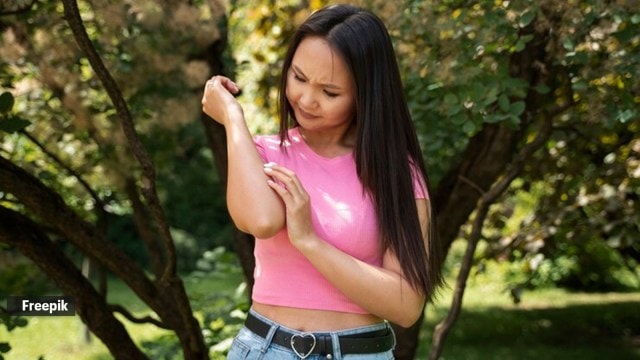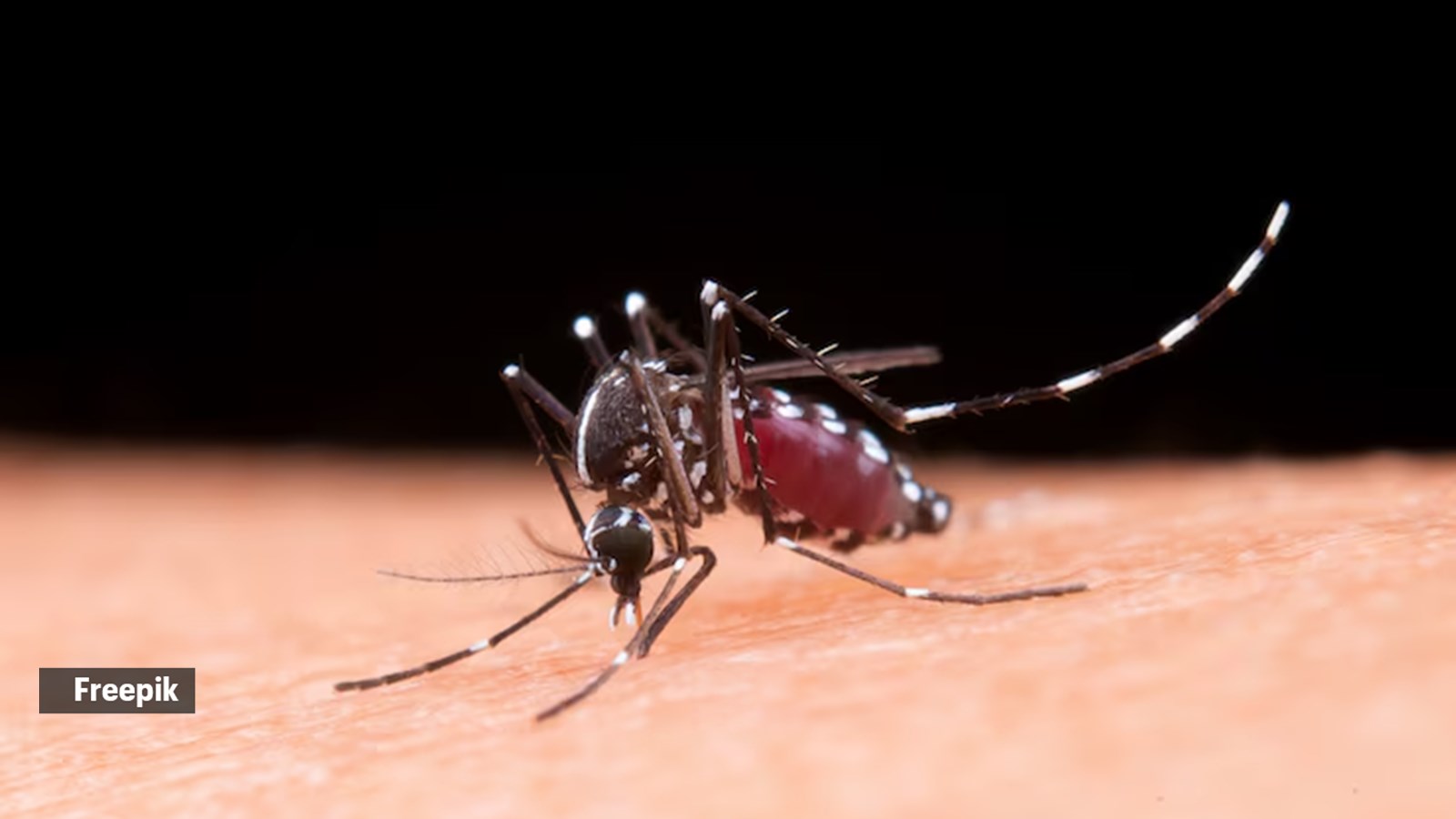📣 For more lifestyle news, click here to join our WhatsApp Channel and also follow us on Instagram
Does applying a heated spoon to a mosquito bite reduce itching? An expert weighs in
What happens when a mosquito bites you?
 According to Dr Sharma, scratching can worsen the irritation, increase inflammation, and potentially lead to infection. (Source: Freepik)
According to Dr Sharma, scratching can worsen the irritation, increase inflammation, and potentially lead to infection. (Source: Freepik)If you’ve been struggling with mosquito bites and have been resorting to Internet hacks that promise to take the itching go away — we have some news for you! Our age old nuskha of applying a heated spoon to a bite may come in handy, but does it pose to do more harm than good? Indianexpress.com spoke to a clinical dermatologist and found out.
Can applying a heated spoon make the itching go away?
“The practice of applying a heated spoon to a mosquito bite is based on the idea that heat can break down the proteins in mosquito saliva that cause itching and inflammation. When a mosquito bites, it injects saliva containing proteins that can trigger an immune response, leading to itching, redness, and swelling. Heat, in theory, can denature these proteins, potentially reducing the itching sensation,” said Dr Vichitra Sharma, Consultant, Dermatology, Amrita Hospital Faridabad.
However, as a dermatologist, she cautioned against this method due to the risk of burns. “The temperature required to denature proteins is relatively high, and there is a fine line between applying enough heat to achieve this effect and causing a burn,” she added.
 Histamine is present in mosquito saliva is a major culprit in causing that itchy feeling. (Source: Freepik)
Histamine is present in mosquito saliva is a major culprit in causing that itchy feeling. (Source: Freepik)
What happens when a mosquito bites you?
When a mosquito bites you, Dr Sharma explained that it injects its saliva into your skin. This saliva contains substances that your body reacts to, causing itching and swelling.
“Histamine is present in mosquito saliva is a major culprit in causing that itchy feeling. Histamine is also released by the cells in our body in response to mosquito bite. Proteins/peptides found in mosquito saliva, can induce / trigger the release of histamine and other chemicals in body,” she said.
“Histamine not only makes you itch but also causes local vasodilation (widening of blood vessels) and edema (swelling). This leads to the red, raised bumps you see after a bite,” she added.
Here are some safer solutions to treat mosquito bites
Cold Compresses: Applying a cold pack or ice wrapped in a cloth to the bite can help reduce swelling and numb the area, providing relief from itching.
Calamine Lotion: Calamine has a cooling effect when it evaporates, and its mild astringent properties can help reduce the oozing and weeping of the bite. This can soothe the skin and provide temporary relief from itching.
Aloe Vera: Known for its anti-inflammatory properties, aloe vera gel can provide soothing relief. Aloe vera also has antibacterial properties that can help prevent infection if the skin is broken from scratching.
Antihistamines: Oral antihistamines like cetirizine or diphenhydramine can help control itching and allergic reactions by blocking histamine receptors.
Topical Corticosteroids: These can reduce inflammation and itching. For more severe reactions, a prescription-strength corticosteroid might be necessary. These creams work by suppressing the immune response and reducing inflammation.
Here’s what you should avoid
According to Dr Sharma, scratching can worsen the irritation, increase inflammation, and potentially lead to infection. It can also break the skin, creating an entry point for bacteria and leading to complications like cellulitis.
“While some advocate for heat, there is a significant risk of burns which can cause more harm than the original bite. The skin on a mosquito bite is already inflamed and sensitive and applying heat can exacerbate the issue,” she said.
Dr Sharma also mentioned that some home remedies might not be effective and could irritate the skin further. For example, applying vinegar or certain essential oils without proper dilution can cause skin irritation or allergic reactions.
DISCLAIMER: This article is based on information from the public domain and/or the experts we spoke to. Always consult your health practitioner before starting any routine.
📣 For more lifestyle news, click here to join our WhatsApp Channel and also follow us on Instagram



- 01
- 02
- 03
- 04
- 05
























